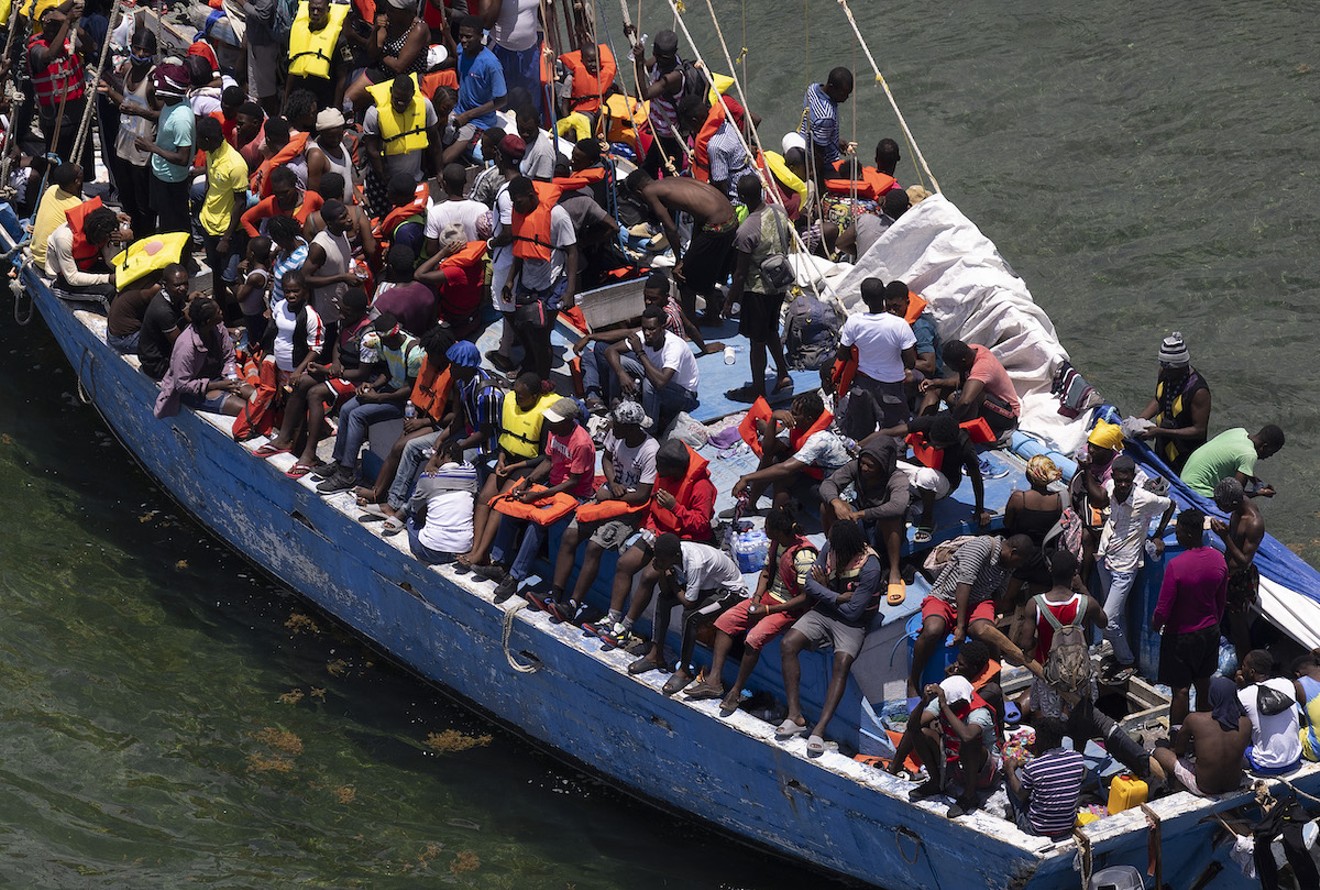In the mid-1950s, under President Dwight D. Eisenhower's administration, U.S. Attorney General Herbert Brownell Jr. boasted that only four would-be immigrants were detained in federal custody. Today, over 25,000 people are detained in ICE facilities throughout the U.S.
With contemporary talk of migrants and immigration detention focusing squarely on the U.S.-Mexico border and the American Southwest, in 2019, WLRN News reporter Daniel Rivero sought to find the true origin of how the U.S. handles immigration policy.
In a new documentary podcast, Rivero accomplishes just that. He traces a throughline of immigration history based not in Texas, Arizona, or Donald Trump's border wall — but in South Florida.
"Today, thousands of people across the country are being held in immigrant detention while local rural economies are tied to having those detention centers," Rivero tells New Times. "What I found by doing all the research is that this is not something that came out of nowhere. It came out of very specific responses to things that started here in South Florida."
In the six-episode series Detention by Design, Rivero uses court records, archival material, and interviews with a host of notable Miami characters to trace back how Cuban and Haitian migration to Miami and other parts of Florida in the 1960s and 1970s — and the U.S. government's response to those migrants — crystallized a system that detains tens of thousands of people who come to the U.S., many of whom are just trying to find a better life.
The podcast opens with a historical dive into the rise of Haitian President François Duvalier in 1957 and how Duvalier's progression into totalitarianism and repression forced many Haitians to seek asylum.
Among others, Gepsie Metellus, cofounder and executive director of the Haitian Neighborhood Center Sant La in North Miami, tells the story of what life was like under the Duvalier regime.
"If you disagreed with him, you were silenced in various ways, various brutal ways. People were killed, people were maimed, and his favorite tool was exile," Metellus shares in the first episode.
In many ways, the story of Duvalier's oppressive push for industrialization in Haiti — aided by the U.S. government — mirrored the repression and totalitarianism in neighboring communist Cuba, Rivero explains.
"The governments were incredibly repressive. They kneecapped the people at any chance they could," Rivero explains. "What happened in Haiti was a mirror image to what happened in Cuba, just under a different economic theory."
The series follows migrants like Abel Jean Simon Zephyr, who came to Miami on a boat in 1973 alongside 61 other Haitians seeking political asylum. Upon arrival, they were sent to a jail in Immokalee, a rural swampland area in Collier County.
Like the tens of thousands of migrants today, Zephyr and his companions found themselves indefinitely imprisoned under fear of deportation for months, all the while pleading for their freedom.
In the case of at least one detainee highlighted in the series, that long wait for justice led to an early grave.
Within just the first few episodes, the podcast is tight, gripping, and emotional and illuminates a history that may be unknown to many in South Florida but has had repercussions throughout the U.S. for the past half-century. It promises to be an educational examination of the nation's history through a lens that has often been overlooked, but the importance of which cannot be overstated.
Detention by Design's first episode premieres Wednesday, September 7, on all major podcast platforms, including Spotify and Apple Music. The remaining five episodes drop every Wednesday through October 12. For more information, visit wlrn.org.
[
{
"name": "Air - MediumRectangle - Inline Content - Mobile Display Size",
"component": "19274298",
"insertPoint": "2",
"requiredCountToDisplay": "2"
},{
"name": "Editor Picks",
"component": "17482312",
"insertPoint": "4",
"requiredCountToDisplay": "1"
},{
"name": "Inline Links",
"component": "18711090",
"insertPoint": "8th",
"startingPoint": 8,
"requiredCountToDisplay": "7",
"maxInsertions": 25
},{
"name": "Air - MediumRectangle - Combo - Inline Content",
"component": "17482310",
"insertPoint": "8th",
"startingPoint": 8,
"requiredCountToDisplay": "7",
"maxInsertions": 25
},{
"name": "Inline Links",
"component": "18711090",
"insertPoint": "8th",
"startingPoint": 12,
"requiredCountToDisplay": "11",
"maxInsertions": 25
},{
"name": "Air - Leaderboard Tower - Combo - Inline Content",
"component": "17482313",
"insertPoint": "8th",
"startingPoint": 12,
"requiredCountToDisplay": "11",
"maxInsertions": 25
}
]












